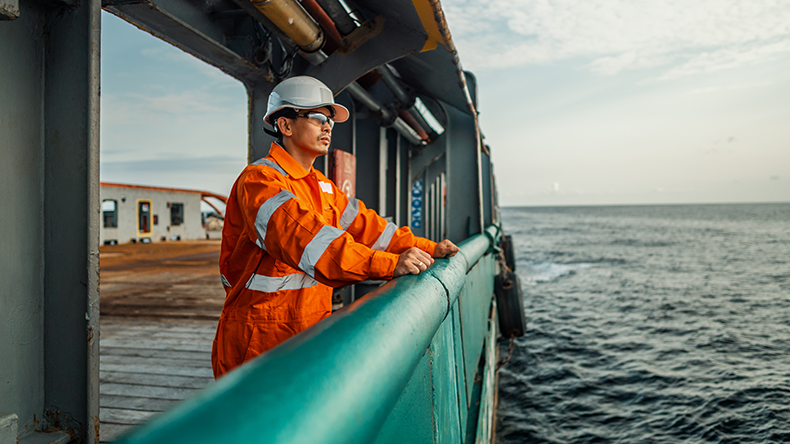You are here
Crewing costs soar as shipping’s spat with airlines leaves seafarers stranded
Crewing costs soar as shipping’s spat with airlines leaves seafarers stranded
Michelle Wiese Bockmann 17 Jul 2020 https://lloydslist.maritimeintelligence.informa.com/LL1133126/Crewing-co...
Costs for accommodation, tests for the coronavirus and the price of airline tickets are eating up huge chunks of the budget shipmanagers normally spend on such things
The price of flights and quarantine accommodation has increased exorbitantly and added to the delays seafarers are facing
COSTS related to crew changing have soared by about 150%, with some flights to Asia from Europe up to five times higher than usual, if they are available at all, according to shipmanagement association InterManager.
The global logistics challenge of trying to change over crew amid constantly changing and inconsistent travel, quarantine and health regulations in key supplying and entry hubs, as well as a lack of commercial flights, has affected some 40% of the world’s 1.5m seafarers.
Only a quarter of crew changes have gone ahead since March, according to latest estimates, with 300,000 seafarers stranded on ships with expired contracts and a further 300,000 unemployed and unable to relieve them.
Quarantine costs for several days while awaiting test results or for longer periods were adding an extra $4,000 per person in some countries, with additional tests, higher-costs flights, accommodation, transport and personal protection equipment blowing out budgets for shipmanagers and owners, InterManager secretary general Kuba Szymanski told Lloyd’s List.
InterManager is collating information about the additional costs, showing that flights, if they could be found, were double usual fares, with some as much as €3,000 ($3,400).
“Fares are slowing dropping as flight options are slowly rising,” he said. “The biggest share (of costs) is quarantine.”
The disconnect between shipping and aviation has emerged as a key issue as shipmanagers and crew operations departments at shipping companies at the coal face look to repatriate crew.
“One of the challenges here is that is that governments have not opened up their borders yet for scheduled service,” said Miami-based Chris Podolsky, general manager North America, from Global Marine Travel.
“If they have, they're only limiting a very small number of flights in. So the airlines are not able to reestablish their schedules the way they want.”
Mr Podolsky said he was moving “a fraction” of normal volumes of crew, for ten times the effort and at significantly greater cost.
The operational, commercial and regulatory challenges were significant, he added.
A Filipino crew member signing off in Rotterdam, for example, would be tested before getting off the vessel, tested again before flying at the airport and resumes the same testing procedures again upon arrival at Manila, as well as quarantine costs in both countries.
Chartering aircraft meant “incredible amounts of paperwork” to organise he said, explaining a recent flight to Manila from Amsterdam involving 210 crew from 65 ships and 15 different companies.
“We had to gather fit-to-fly certificates from every crew member. There had to be spot checks throughout. The airline wants you to sign the charter agreement and that means putting down a very large non-refundable amount on the charter without you having the assurances that you're going to be able to fly.
“We did not get the final clearances for these crew members until within 12 hours prior to the flight leaving.
“If any one of these companies had bailed out at the last minute, or found alternate means they're not obliged to pay for those seats until we've got a signed charter contract and an agreement with them to go.
“So how do you herd cats like this together; to get them off of all of these different vessels, get all of this put in motion on the chances that it's not going to happen because somebody’s going to fall out?”
Maersk repatriated seven of its seafarers on July 16 from the containership Rhine Maersk via Panama. They disembarked at the Panama Canal to take connecting flights to Amsterdam and Copenhagen. A similar repatriation in Panama happened on July 12 for 13 crew who caught a humanitarian flight.
Stories of crew taking as many as five flights and several weeks to arrive home are now emerging, while others refuse to leave their ship for fear of being exposed to coronavirus are now emerging.
Crew costs comprise about half of the operating capital expenditure for vessels, according to the BDO annual OpCost survey.
Wages accounted for about 80 percent capex s with provisions and ‘other’ expenses — which cover travel — making up the remainder.
“Shipping is now getting around to a new normal,” one shipping accountant told Lloyd’s List. “For the past few months, it has all been very reactive, but that period is over. This industry is incredibly resilient and while it’s clearly been very tough on seafarers, owners and managers are doing the best they can.”
Additional costs vary depending on the country, according to InterManager. There were increased flight costs in the US but other costs remained unchanged. Hotel costs for quarantine purposes awaiting test results were rising, with some crew managers booking business class tickets in order to get confirmed seats.

